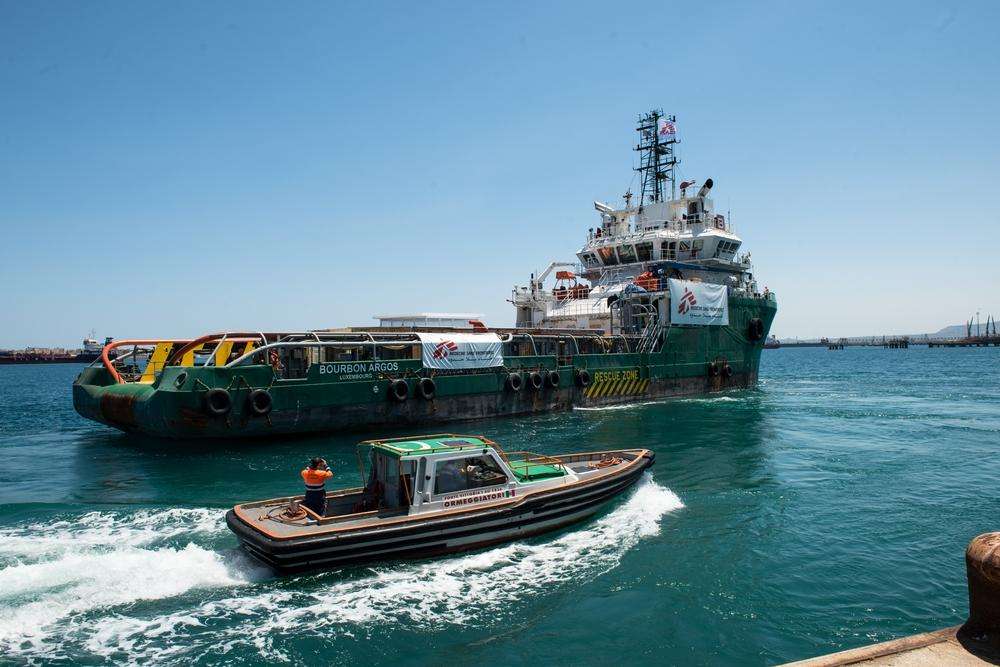After eight months at sea, 20,129 people rescued, and more than 120 separate search-and-rescue operations, the Doctors Without Borders/Médecins Sans Frontières (MSF) search and rescue ship Bourbon Argos returned to port for the last time in 2015 on December 30. As winter conditions have reduced the number of people crossing the central Mediterranean, MSF has gauged that there are currently enough assets to deal with existing needs during the winter season.
Nonetheless, MSF is once again calling for European Union (EU) authorities to provide adequate, dedicated search-and-rescue resources to prevent tragedies in the months ahead, particularly as we head towards Spring, when the number of arrivals is are expected to increase again.
"None of the people on board the unseaworthy boats we rescued would have made it to safety without intervention," said Stefano Argenziano, MSF’s manager of migration operations. "While we remain absolutely convinced of the importance of dedicated search and rescue in saving lives, we are doctors and search and rescue shouldn’t be our job. We very much hope that European resources will be sufficient in 2016 and that our boats will not be required."
Video: Unacceptable Conditions at Sea
Despite the end of MSF’s operations in the central Mediterranean, the organization remains on standby to intervene should the EU and its member states fail to protect the lives of the thousands of men, women, and children expected to flee North Africa for Europe in the coming months. (MSF also continues to work on rescue operations, in coordination with Greenpeace, in the Aegean Sea, where refugees continue trying to cross from Turkey to Greek Islands).
As stated when the first MSF ship was launched in the Mediterranean Sea in May 2015, permanent search and rescue operations are not the solution to migration by sea—they are but a temporary measure to mitigate the loss of life caused by restrictive border policies that force people to the sea in search of protection. Despite the deployment of increased resources at sea, 2015 was the deadliest year on record in the Mediterranean, with 3,771 men, women, and children officially recorded as having drowned or gone missing on the shores of Europe. The real numbers are likely to be much higher.
Read More: Stories from the Bourbon Argos
"It is absolutely crucial that the EU and the member states provide resources [that] are dedicated, proactive, [and] capable of reacting within an hour of the distress call. But search and rescue cannot stop deaths at sea," said Brice de le Vingne, MSF director of operations. “What will really end deaths at sea, in the central Mediterranean as well as in the Aegean, is the implementation of policies and practices that provide safe and legal channels to the EU and eliminate the need for people to use smugglers and overcrowded rubber and wooden boats to reach the shores of Europe."
In 2015 MSF teams on board three ships patrolling the Mediterranean Sea assisted over 23,000 people in distress either through direct rescues (20,129) or by transfer from or to other vessels, and took part in 120 separate rescue interventions, disembarking safely in Italy more than 80 times. Data from the Bourbon Argos show that 4,424 rescued people were in need of medical care, 355 were suffering from a serious health condition and 140 were pregnant women.
Learn More About MSF's Work With Refugees





